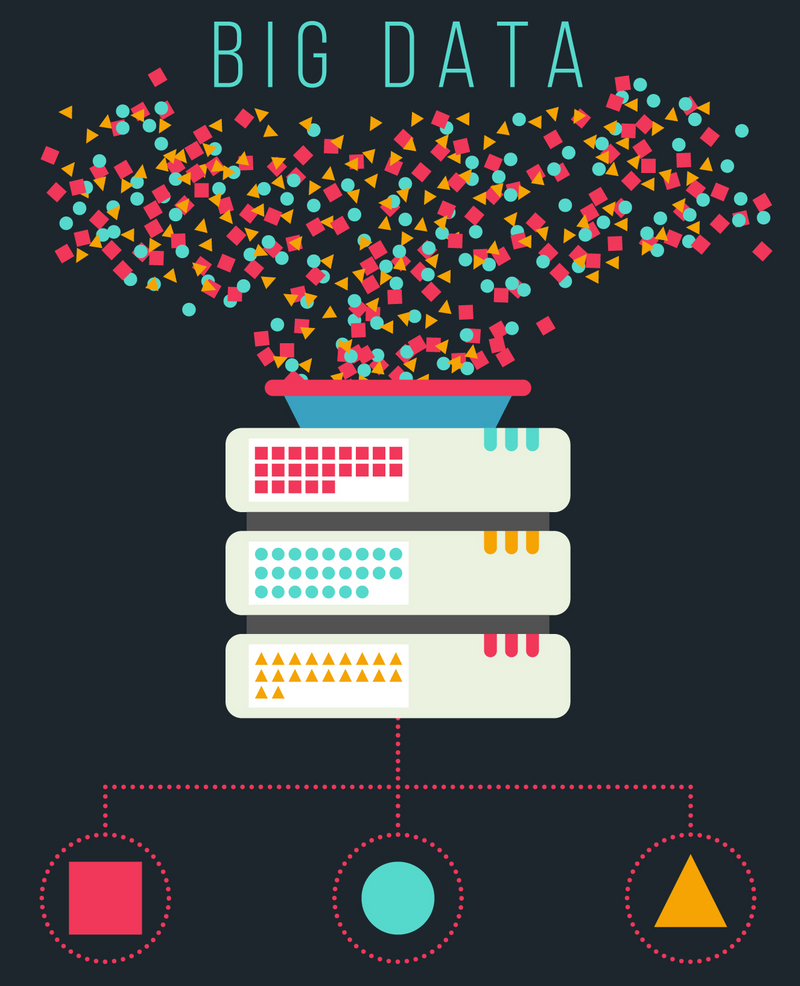Do you ever feel like you're drowning in data?
Every second, the world is creating more data than you can imagine: tweets, TikToks, transactions, GPS pings, even the smart watch reminding you to drink water. The problem isn’t getting data, it’s making sense of it. That’s where data engineers come in.

Data engineers design and maintain the systems that make data accessible and useful. Understanding their role and the key skills involved is the first step toward entering this rapidly growing field.
If you’re someone who likes solving problems, working with tech, and building things behind the scenes, data engineering might be your career sweet spot.
What Does a Data Engineer Actually Do?
Think of data engineers (DEs) as the architects of the digital world. They design and build the pipelines that take raw, messy data and turn it into clean, usable information for analysts and data scientists.
A big part of their job revolves around something called the ETL/ELT process:
Extract data from different sources (databases, APIs, logs, etc.).
Transform it by cleaning, filtering, or reformatting it.
Load it into a data warehouse or data lake where it can be accessed by analysts and data scientists.
In short, data engineers are the ones who make data usable, they ensure information flows smoothly, stays accurate, and is ready for the people who turn it into insights.

Imagine your school cafeteria. It actually produces lots of messy data: sales receipts, student surveys, and even weather information, but none of it is organized. A data engineer’s job is to:
Collect all that data.
Clean it up (fixing errors like “pzza” instead of “pizza”).
Store it in one organized place, such as a database.
Make it usable for others to analyze information and make smart decisions.
 Image courtesy of Freepik
Image courtesy of Freepik
Skills A Data Engineer Needs
Tech Skills (non-negotiable):
SQL → Your daily driver for database management. Learn relational (PostgreSQL, MySQL) and NoSQL (MongoDB, Cassandra).
Python → The most popular language for scripting and pipelines.
Big data tools → Java/Scala can help with data processing systems like Apache Spark.
Cloud platforms → Get comfortable with AWS, Google Cloud, or Azure.
Data warehousing → Know Snowflake, Redshift, or BigQuery.
Soft Skills (just as important):
Problem-solving when pipelines fail. Sometimes the systems that move data from one place to another break, or something just doesn’t load right. A DE needs to figure out where the issue is and why it's happening, then fix it quickly.
Communication with analysts, scientists, and business folks. It's crucial that a DE is able to explain technical issues in simple terms to help everyone stay on the same page and make better decisions.
Teamwork, as data engineering is rarely a solo gig. A DE often collaborates with others to design systems, test data flows, and solve tricky technical problems together.
 Image courtesy of Freepik
Image courtesy of Freepik
Quiz
Imagine you're working as a data engineer with a financial company. Your primary responsibilities are organizing, cleaning, and analyzing large datasets. Which tool is best suited for these tasks?
The Job Market
Data engineering is HOT right now because data is everywhere!
The videos you watch, the games you play, and even the way your school tracks attendance. Every time you stream music, buy something online, or scroll through social media, tons of data are created. But all that information is useless if it’s messy or unorganized. That’s where data engineers come in.
However, like any career, data engineering comes with both pros and cons. It’s good to keep both in mind as you explore your path toward becoming a DE.


Pros
High demand: Every company working with large data sets needs data engineers.
Room to grow: Clear career paths into senior or specialized roles, and your skills stay relevant.
Respected expertise: Your expertise earns respect and keeps your career secure and valued.
Flexibility: Many roles are remote or hybrid-friendly.
Cons
Tons of competition: Everyone from bootcamp grads to computer science majors wants in.
High stakes: If a pipeline breaks, the business feels it. Expect pressure.
Always learning: New tools, new platforms, new expectations. You’ll need to stay sharp.
How to Learn DE Skills
You have many options to study data engineering, whether through formal education or self-learning. Tons of resourcesare ready for you whenever you decide to pursue this career path:
At School
In high school, start by taking math, computer science, or technology classes. If your school offers a statistics or data class, that’s a bonus!
In college, most data engineers study something like computer science, data science, or information systems.
For example, you may consider taking these courses in your first-year semester at college:
Intro to Programming (Python or Java): learn to write and debug code.
Discrete Mathematics: Build logical thinking skills used in algorithms.
Introduction to Databases (SQL): Understand how data is stored and retrieved.
Statistics 101: Learn how to interpret and analyze data.
Cloud Computing Fundamentals: Get familiar with platforms like AWS or Google Cloud.
Outside of School
There are two main ways to continue your DE study:
 Image courtesy of Freepik
Image courtesy of Freepik
Gaining Real Experience
In the tech field, employers immediately notice candidates who have projects that prove their hands-on building skills. To maximize your competence, focus your resume on projects that demonstrate:
Your skills in designing end-to-end pipelines.
Your impact in business value, not just technical skills.
Your ability in using tools required in real job postings.
Where to Find Ideas & Datasets
GitHubto build your portfolio.
→ Explore open-source data engineering projects or share your own.
Kaggle to play with real-world datasets.
→ Use Kaggle’s e-commerce sales dataset to build an automated pipeline that tracks customer trends and loads results into a dashboard.
YouTube to learn step-by-step with real practitioners.
→ Follow along with creators like Darshil Parmar or Data with Zach to recreate mini-projects, such as building a data warehouse on Snowflake or automating data ingestion with Airflow.

Job Hunting & Networking
Landing your first data engineering role is not just about what you know—it’s also about who you know and how you present your skills.
Communities in DE
LinkedIn: Follow companies you admire, join data engineering groups, and engage with posts from industry professionals.
Reddit: Subreddits like r/dataengineering, r/datascience, and r/cscareerquestions are great for honest advice and learning from others’ experiences.
Meetup: Search for local or virtual data meetups, hackathons, or cloud user groups (e.g., AWS, GCP). These are great for meeting people in person and hearing about open roles.
Informational Interview
Networking is most effective in real time. Reach out to a data engineer or recruiter on LinkedIn, express genuine interest in their work, and ask for a brief 15–20 minute chat.
The goal isn’t to ask for a job — it’s to learn from their experience, gain insider insight, and build authentic connections that may open doors later.
Check out this article on how to ask questions for an informational interview!
 Image courtesy of Freepik
Image courtesy of Freepik
Take Action
You now know the career path to becoming a data engineer — from mastering technical pipelines and soft skills to exploring different learning paths. Now it’s time to put that knowledge into action.
Building genuine connections is one of the most effective ways to advance your career. While hard skills like SQL, Python, and cloud technologies are essential, talking with data engineers or recruiters can show you how those skills are used in real projects.
A short, curiosity-driven chat on LinkedIn can offer valuable insights and spark authentic relationships that may open doors later on.

Your feedback matters to us.
This Byte helped me better understand the topic.
